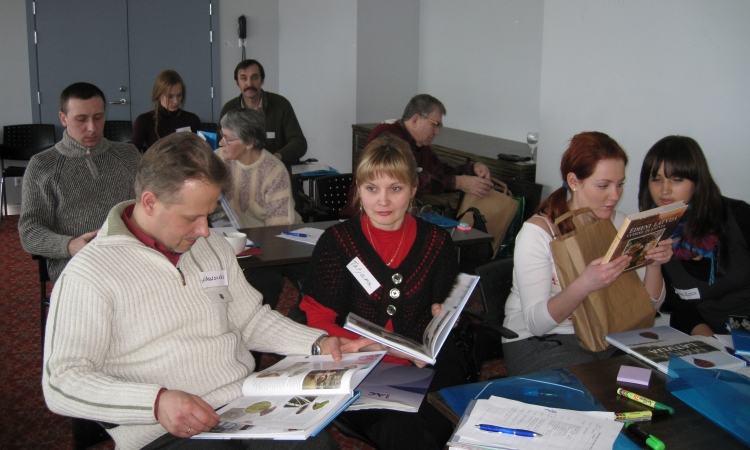„Educational activities to improve the knowledge and skills of the third-country citizens for their successful integration in Latvia” (2009 – 2010).

The project is implemented in the framework of the year 2008 program of the European third-country citizens’ integration foundation of the European Union Solidarity and migration management key program 2007 – 2013. The project is implemented with 75% European Union funding and 25% Funding provided by the Latvian state budget.

The aim of the project is to promote the integration of the third-country citizens with different economic, social, cultural, religious, language and ethnic background in the society of Latvia and Europe.
During the project the Education Development center (EDC) develops a training program and organizes the practical training of 50 people who have moved to Latvia for living. The face to face seminars organized during the run of the project and the content of the modules of the training program “To live in Latvia”: Society of Latvia. Me in the society of Latvia. Latvian state and legislation. Social assistance. National economy of Latvia. Employment. History, culture, traditions of Latvia that reveal the ways and possibilities for integration in Latvia, encourage the target groups of the project to participate in the cultural, social and political life of Latvia.
The developed teaching materials will help those who have arrived in Latvia to acquire the most important knowledge about the language, state institutions, social and economic assistance, the cultural life and other issues. The materials will be applicable to diverse target groups also outside the project in order to promote the unity of the society and to reduce the social tension.
The teaching materials and methodological recommendations developed as the outcome of the project will help the specialists in the field to educate the communities and to implement the immigration policy in the future. We plan to inform the cooperation institutions about the methodological materials and the possibilities of their usage in the final stage of the project. EDC regularly informs about the run of the project and its outcomes in its home page: www.iac.edu.lv.
